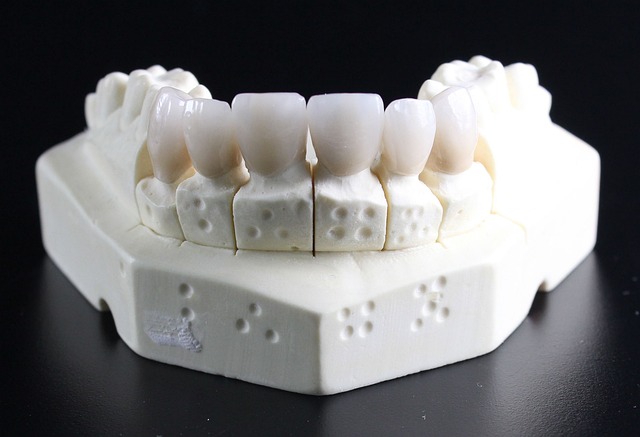Bruxism, commonly known as teeth grinding or clenching, is a condition that affects many individuals, often without their awareness. While bruxism is primarily associated with dental problems, its impact extends beyond oral health to emotional well-being. This article aims to highlight key factors that shed light on the far-reaching effects of bruxism on emotional wellness. By understanding the relationship between bruxism and stress, anxiety, sleep disturbances, and quality of life, individuals can recognize the importance of addressing this condition with the help of a general dentist in SE Calgary for their overall well-being.
Bruxism and Stress
 Stress is a significant contributor to the development and exacerbation of bruxism. Individuals who experience chronic stress, whether due to work pressures, financial concerns, or personal issues, are more likely to engage in teeth grinding or clenching. Bruxism becomes a physical manifestation of stress and tension, expressing the body’s attempt to cope with overwhelming emotions. The cycle of stress and bruxism becomes self-perpetuating as the act of grinding or clenching further aggravates stress levels.
Stress is a significant contributor to the development and exacerbation of bruxism. Individuals who experience chronic stress, whether due to work pressures, financial concerns, or personal issues, are more likely to engage in teeth grinding or clenching. Bruxism becomes a physical manifestation of stress and tension, expressing the body’s attempt to cope with overwhelming emotions. The cycle of stress and bruxism becomes self-perpetuating as the act of grinding or clenching further aggravates stress levels.
Bruxism and Anxiety
Bruxism and anxiety often go hand in hand, with anxiety acting as both a cause and an effect of teeth grinding or clenching. Many individuals with anxiety disorders, such as generalized anxiety disorder or panic disorder, experience bruxism as a result of the heightened state of arousal and tension associated with these conditions. Conversely, bruxism can contribute to increased anxiety levels, with individuals worrying about the potential consequences of their teeth-grinding habit. Anxiety caused by bruxism may manifest as social anxiety related to concerns about dental appearance or fear of being judged for teeth-grinding sounds during sleep.
Bruxism and Sleep Disturbances
Bruxism has a significant impact on sleep quality, leading to disturbed sleep patterns for both the individual experiencing teeth grinding and their sleep partners. The grinding and clenching noises can disrupt sleep, causing frequent awakenings and leading to inadequate restorative sleep.
Bruxism and Quality of Life
 The effects of bruxism on emotional well-being ultimately influence an individual’s overall quality of life. Chronic teeth grinding or clenching can lead to chronic pain, jaw discomfort, headaches, and dental problems, contributing to reduced enjoyment of daily activities. The physical discomfort and appearance concerns associated with bruxism can also affect self-esteem and body image. Moreover, the emotional distress caused by bruxism can interfere with interpersonal relationships, social activities, and work performance.
The effects of bruxism on emotional well-being ultimately influence an individual’s overall quality of life. Chronic teeth grinding or clenching can lead to chronic pain, jaw discomfort, headaches, and dental problems, contributing to reduced enjoyment of daily activities. The physical discomfort and appearance concerns associated with bruxism can also affect self-esteem and body image. Moreover, the emotional distress caused by bruxism can interfere with interpersonal relationships, social activities, and work performance.
Bruxism goes beyond its impact on dental health, profoundly affecting emotional well-being. Understanding the relationship between bruxism, stress, anxiety, sleep disturbances, and quality of life is essential for recognizing the significance of addressing this condition.…


 Identifying your triggers is one of the first steps in managing your mental health. Triggers are specific events, situations, or people that can cause a negative emotional response or worsen existing mental health issues. By recognizing and understanding what triggers you, you can better navigate these challenges and take proactive steps to protect your well-being.
Identifying your triggers is one of the first steps in managing your mental health. Triggers are specific events, situations, or people that can cause a negative emotional response or worsen existing mental health issues. By recognizing and understanding what triggers you, you can better navigate these challenges and take proactive steps to protect your well-being.

 Clinical Practice Guidelines (CPGs) are a type of evidence-based medicine that provides recommendations on diagnosing and treating various diseases and conditions. The goal of CPGs is to improve the quality of care by providing healthcare providers with the most up-to-date and accurate information available. Many different organizations develop CPGs, including the World Health Organization (WHO), the U.S. Preventive Services Task Force (USPSTF), and the American Academy of Pediatrics (AAP).
Clinical Practice Guidelines (CPGs) are a type of evidence-based medicine that provides recommendations on diagnosing and treating various diseases and conditions. The goal of CPGs is to improve the quality of care by providing healthcare providers with the most up-to-date and accurate information available. Many different organizations develop CPGs, including the World Health Organization (WHO), the U.S. Preventive Services Task Force (USPSTF), and the American Academy of Pediatrics (AAP).